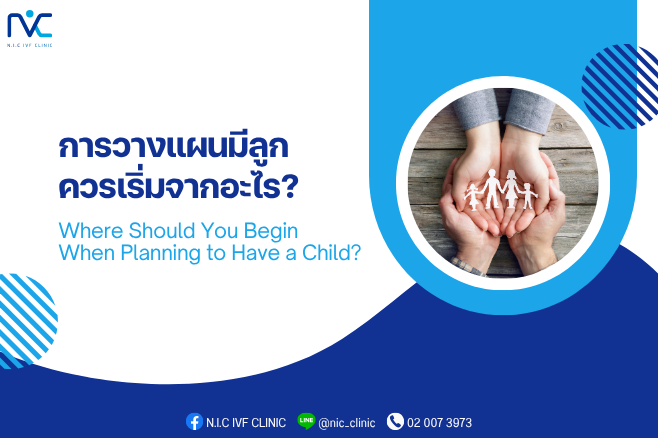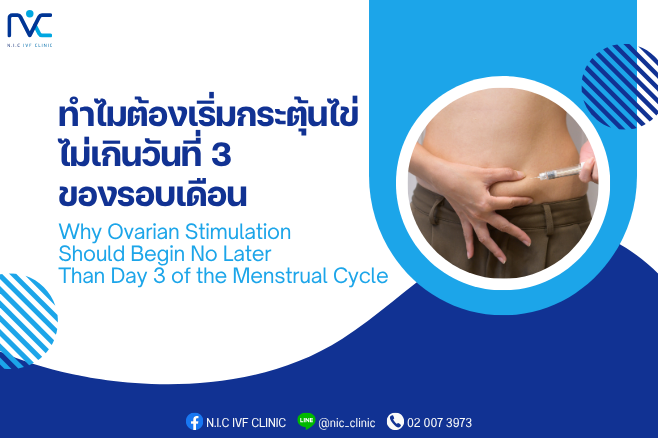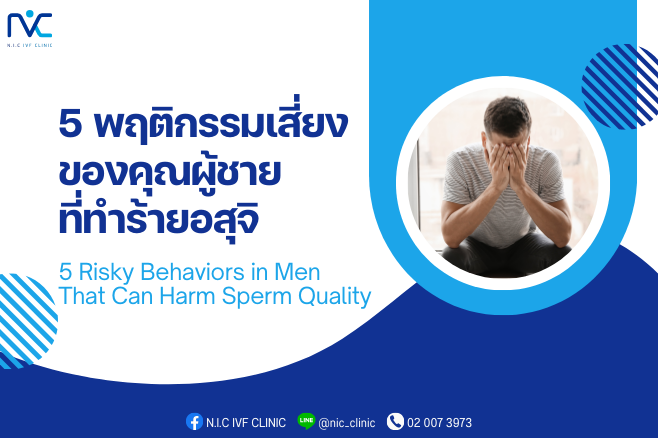NEWS & KNOWLEDGE
Where Should You Begin When Planning to Have a Child?


Where Should You Begin When Planning to Have a Child?
Preparing to have a child should start with building a solid foundation in the relationship between spouses. A strong and healthy family begins with love, trust, and mutual support between partners. Planning for children is an important part of preparing for a future family, and both partners should be aligned in their readiness—physically, emotionally, and mentally.

Ask Yourself These Questions Before Trying to Conceive:
- Are we ready to fully embrace the responsibilities of parenthood?
- Are we prepared to work together in solving challenges related to raising a child?
- Are we willing to dedicate significant time and attention to caring for a child?
- Are we financially prepared to support a child from infancy through development?
If your answers are “yes,” the next step is to begin preparing your body and mind. Fertility and pregnancy outcomes are closely linked to physical health, emotional wellbeing, and lifestyle habits. Lack of preparation or unaddressed health issues may contribute to difficulties in conception.
How to Prepare Before Pregnancy
1. Eat a Nutritious, Balanced Diet
Focus on eating a variety of foods from all five food groups. Nutritional support for egg and sperm quality includes protein-rich foods, iron, leafy greens, and avoiding alcohol and processed foods.
2. Start Taking Key Supplements Early
Folic acid is especially important. Women should begin supplementation at least 1–3 months before trying to conceive to reduce the risk of neural tube defects and support early fetal development.
3. Maintain a Healthy Body Weight with Regular Exercise
Obesity or being significantly underweight can affect ovulation and increase the risk of fertility-related conditions such as Polycystic Ovary Syndrome (PCOS). Moderate, consistent physical activity helps regulate hormones and improves overall reproductive health.
4. Avoid Risky Behaviors and Improve Sleep Hygiene
Quit smoking, avoid alcohol and recreational drug use, and ensure at least 7–8 hours of quality sleep each night. These lifestyle factors can significantly influence fertility and pregnancy outcomes.
5. Prioritize Oral Health
Poor dental health can increase the risk of infection and inflammation in the body. Make sure to have a dental check-up and treat any existing oral issues before pregnancy.
6. Update Required Vaccinations
Both partners should receive necessary vaccines before attempting to conceive. Some vaccinations should be completed in advance to ensure full protection during pregnancy.
7. Schedule a Preconception Health Check-Up with a Fertility Specialist
A comprehensive health screening can detect any underlying medical or genetic issues that may affect fertility or pregnancy. Ideally, this evaluation should be done at least 3 months before trying to conceive to allow time for intervention if needed.

Taking care of your health and undergoing a preconception check-up are the first steps in planning a healthy and happy family. When both parents are in good health and have taken preventive measures, their future child is more likely to grow up healthy, well-developed, and full of life.
Article by:
Assoc. Prof. Dr. Matchuporn Sukprasert
References:
Department of Health, Bureau of Reproductive Health (Thailand)
For more information, please contact us via:
LINE Official : @nic_clinic or https://lin.ee/Mmq6m2K
Tel: 02-007-3973 or 095-370-2483


